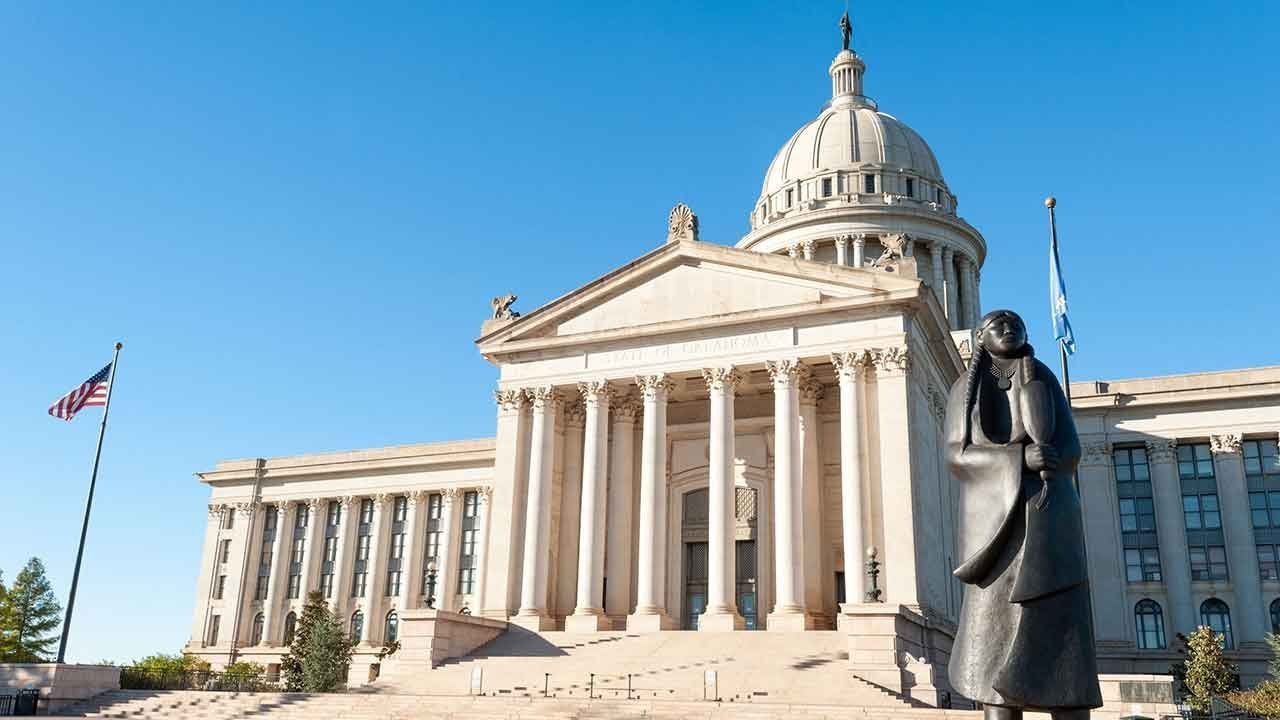-
Casinos for you
Oklahoma Legislators Shoot Down Two Tribal Gaming Compacts
By Jeff Osienya Oct 30, 2023 Legality Lawmakers in Oklahoma have voted out a tribal-state gaming compact with two Native American tribes despite Governor Stitt’s endorsement. This is another of the many tribal gaming agreements negotiated by the governor that have faced legal contention.
Lawmakers in Oklahoma have voted out a tribal-state gaming compact with two Native American tribes despite Governor Stitt’s endorsement. This is another of the many tribal gaming agreements negotiated by the governor that have faced legal contention.On October 25th, lawmakers in the Sooner State, serving on the Joint Committee on State-Tribal Relations, voted to kill casino gaming compacts for two small tribal nations – the United Keetowah Band of Cherokee (UKB) Indians and the Kialegee Tribal Town (KTT). The compacts with the two tribal nations had been proposed by Governor Kevin Stitt but were shot down, citing the tiniest legal objections.
Oklahoma’s joint Committee argued that approval could have led to an expansion of casinos across Oklahoma, something they said may be detrimental to the society. The latest move by the Joint Committee on State-Tribal Relations is yet another setback in the governor’s long-standing pursuit of changing the state’s approach to tribal gaming.
During a recent committee hearing, a representative of the Oklahoma governor, Trevor Pemberton, argued that the compacts represented excellent prospects of an economic boost for the state. Still, that was not enough to get the compacts approved. Of course, Governor Stitt expressed disappointment with the vote, questioning why two more casinos were a problem in a state with 143 operational gambling venues.
Tribal Leaders Were Not Given Room to Defend the Compacts
The special convention of the Joint Committee on State-Tribal Relations provided a unique opportunity for two small tribes in the state to have their plights addressed. However, the representatives of the tribes would end up with the short end of the stick.
The process seemed to be marred by the all too familiar signs of minorities receiving an unlucky draw from a deck of political and bureaucratic cards that are always stacked against them. To their surprise, the representatives of the tribes were not even allowed to speak to the Joint Committee on an issue that would directly impact them. Governor Stitt’s general counsel was the only person authorized to defend the proposal.
From there, the Committee deliberated for about half an hour before it announced that it had unanimously disapproved a pair of Governor Stitt’s negotiated gambling compacts with the two tribes. The seemingly unfair nature of the way the deliberations unfolded with the tribal nation representatives was also echoed by Senate Floor Leader Greg McCartney.
Although Mr. McCartney had made both motions to disapprove the two compacts, he said it was strange that the tribes’ leaders were not questioned on matters concerning them. This was especially curious, especially given that the Governor’s counsel, Mr. Pembertorn, had told the Committee that the tribal leaders would have been in a better position to discuss the casino plans than he was. According to McCartney, what he got from the hearing was only a vague sense of the political standing and dynamism of the two tribes.
Sen. Brent Howard (R-Altus), the co-chair of the recent meeting, was asked to comment on why the legislators did not hear from the tribal leaders. He referred to the situation as a little bit of oversight, going on to comment:
Quote“It didn’t really come up as to that specific side. The request for consideration and the push really did come more from the governor’s office.”
United Keetowah Band of Cherokee Indians Chief Joe Bunch expressed his disappointment in the Committee’s hearing process and the eventual outcome. He opined:
Quote“We are disappointed that we didn’t get to tell our side of the story. Today’s defeat, it hurt. It hurts big, particularly not to have the opportunity to address these issues.”
As for the Kialegee Tribal Town, which is based just west of Wetumka, their leader, Mekko Stephanie Yahola, expressed similar disappointment, saying:
Quote“I’m kind of disappointed how the bigger tribes have tried to keep the smaller tribes down... We were kind of disappointed that we were not able to speak at that table and give our side of the story.”
Yahola said this, citing the historic opposition to KTT and UKB gaming, spearheaded by the associated Muscogee Nation and Cherokee Nation, respectively.
Litigation Against Tribal Compacts Continues
Although the legislature rejected Governor Stitt’s two compacts, they are part of four new agreements that the governor signed and submitted to the U.S. Department of Interior (DOI). This then brings us back to June 2020, when the DOI abstained from okaying or rejecting a pair of Stitt’s compacts with the Otto-Missouria tribe and the Comanche Nation. As such, the two compacts were deemed to have been approved.
But then, the compacts were hit with state and federal litigations, with the plaintiffs arguing that the governor had deliberately circumvented legislative approval. Some of the larger tribes also moved to the courts to stop the compacts, arguing that the federal agency had made a mistake in approving the compacts. Eventually, the Otto-Missouria and the Comanche compacts were deemed illegal under state law as the Oklahoma Supreme Court ruled that Stitt failed to involve the legislature.
The case has since seen 180 filings and is still pending in the U.S. District Court for the District of Columbia. Among the critics of the Governor’s handling of the tribal compacts issue has been Oklahoma State Attorney General Gentner Drummond. AG Drummond has accused the governor of wasting taxpayer’s money and misrepresenting the state’s case.
On his side, the governor has continued to oppose the involvement of the AG, alleging that Drummond has an allegiance to the leaders of the larger tribes. To prove this point, the Governor’s legal team points to the political donation made by the AG to the chief of the Cherokee Nation, who also happens to be the plaintiff in the case.
Well, as the legal battles draw on, it remains to be seen what fate will befall the two surviving compacts. At a recent hearing, State Senator Kay Floyd (D- Oklahoma City) argued that the ongoing litigation was reason enough to hold off approving the compacts.
You might also like
-
CASINOS
- Popular
- Specialty
- Features
- Casinos By
-
BONUSES
- Popular
- By Type
-
GAMES
-
Slots
- Popular
- By Software
- Variations
- Features
-
Blackjack
- Popular
- Variations
- Features
-
Roulette
- Popular
- Variations
- Features
-
Video Poker
- Popular
- Variations
- Features
-
Craps
- Popular
- Features
-
Baccarat
- Popular
- Features
-
Poker
- Popular
- Variation
- Features
-
More Games
- Keno
- Bingo
- Fixed Odds
- Other Games
-
JACKPOTS
- Popular
- By Game
- By Software
-
COMMUNITY



.png.0f651d9e8ab97819d8e6bcc89d162b26.png)

.png.a0acfd195007976e042ec7e6bcc699bc.png)













